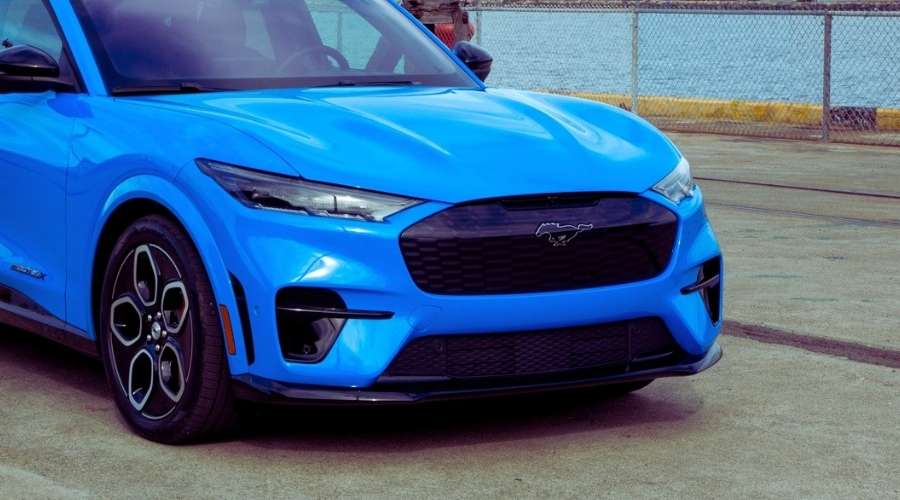New regulations that will bring federal tax incentives for electric cars (EVs) into compliance with the EPA’s greenhouse gas emissions guidelines have been released by the U.S. Treasury Department. The federal tax credit of $7,500 is now available to owners of Ford and Tesla SUVs under the new regulations. Vehicles with a minimum electric range of 75 miles and that adhere to EPA greenhouse gas emission criteria are eligible for the tax credit.
To be eligible for the tax credit under the new regulations, EVs must adhere to the EPA’s Phase 2 greenhouse gas emissions requirements. The regulations place a cap on the amount of greenhouse gasses that automobiles are allowed to release. The Treasury Department is promoting the adoption of EVs with higher fuel efficiency and reduced emissions by aligning the regulations with the EPA’s guidelines. The effort to lower greenhouse gas emissions from the transportation industry has advanced significantly with this development.
Auto consumers could save thousands of dollars thanks to the new revisions in electric vehicle tax credit restrictions, while automakers could gain more money. According to the new regulations, tax credits cannot be claimed for vehicles costing more than $55,000; however, SUVs can cost up to $80,000 and still qualify. Prior to the addition of a third row of seats, the Treasury Department classified the Tesla Model Y and Mustang Mach-E as vehicles for tax credit reasons. Regardless of seating capacity, the Environmental Protection Agency (EPA) classed both models as electric SUVs on their FuelEconomy.gov website. The Treasury Department stated on Friday that it will harmonize its definition of an SUV with the EPA’s “consumer-facing” criterion for fuel efficiency in order to address the mismatch.
Recently, the Treasury Department announced a change to its approach to tax credits for electric vehicles. For the purpose of Corporate Average Fuel Economy rules, the agency has previously relied on definitions provided by the National Highway Traffic Administration. These classifications, referred to as CAFE definitions, frequently differed from what the general public believed to be a vehicle’s classification based on shape. Additionally, the same vehicle could be classified as a car under CAFE with certain features and an SUV with others.
For instance, the Volkswagen ID.4 would fall under the CAFE standards’ definition of an SUV if it had all-wheel drive, but not if it didn’t. However, regardless of their qualities, such vehicles would be categorized as SUVs under the guidelines established by the Environmental Protection Agency (EPA) for its website.
The Treasury Department has now made the decision to harmonize its definition of SUVs with the “consumer-facing” standard employed by the EPA in order to address these disparities. The agency announced that this modification will guarantee that crossover vehicles with identical features are handled consistently.
It is significant to remember that under the new rules, not all vehicles branded as SUVs by automakers will be eligible for the tax credits. For instance, even though it is advertised by General Motors as a crossover SUV version of the Bolt hatchback, the Chevrolet Bolt EUV has a $55,000 maximum. According to Chris Harto, a senior policy researcher at Consumer Reports, “In many cases, they’re basically hatchbacks and station wagons with better marketing,” the line between cars and SUVs can frequently be hazy.
However, the Treasury Department has declared that anybody who bought a car on January 1, 2023 but wasn’t entitled for a tax credit under the old laws may now be. No vehicles would lose their eligibility as a result of this policy change, the agency further affirmed.
Many buyers of electric vehicles are likely to applaud this change in Treasury Department policy since it will make it possible for them to qualify for tax credits that they would not have previously had access to. Additionally, individuals will be able to more readily assess whether or not their car qualifies for a tax credit thanks to the clarity provided by the new standards. Additionally, it has been stated by the Treasury Department that it will cooperate with the Internal Revenue Service (IRS) to ensure that those who qualify for a tax credit can actually obtain one.
The Treasury Department’s initiatives to promote the use of electric vehicles and make sure that they are properly supported by the government include the new regulations. With the new regulations in place, buyers of electric vehicles can feel more at ease, knowing that they are getting the right tax credits and being rewarded for choosing to go electric.

